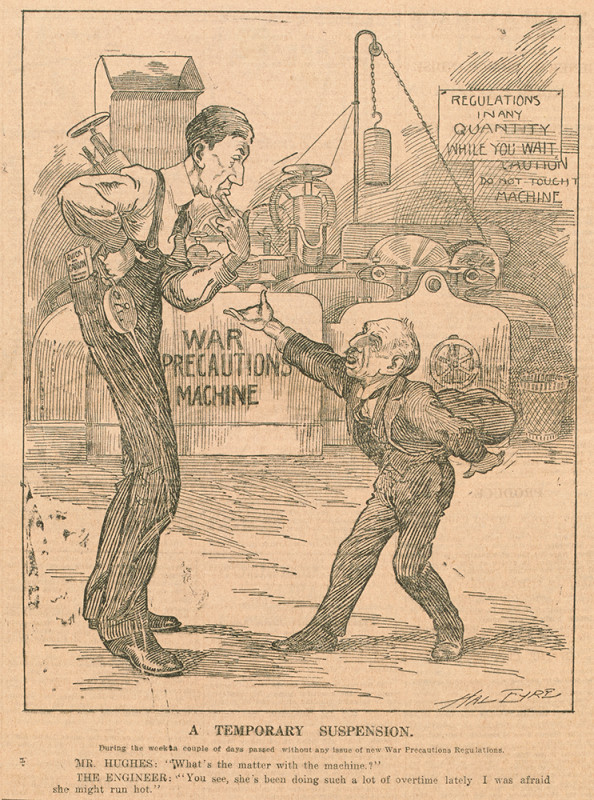War Precautions Act 1914
29 October 1914
This Act was made to protect Australia during the war. It gave the government powers it had never had before.
In response to the outbreak of the First World War the Australian Parliament passed the War Precautions Act 1914. This Act gave the Governor-General, acting on the advice of the Prime Minister and ministers, the power to make regulations for ‘securing the public safety and defence of the community.’
The War Precautions Act 1914 was used to make more than 100 regulations. These included:
- censoring what could be reported in the press
- restricting the sale of certain products
- limiting public gatherings including sporting events
- restrictions on speech and communications
- forcing residents and citizens 'of enemy origin' to move to internment camps
- fixing the price of basic food items
- limits on interest rates.
It was argued that these and other extraordinary measures were necessary to protect Australia and its citizens at this time of crisis.
The War Precautions Act 1914 gave the executive government – the Governor-General, Prime Minister and ministers – the power to make laws instead of the Parliament. Using the defence powers in section 51 of the Australian Constitution, the government was able to make regulations which would have been unlawful in peace time. It also gave government the power to control the political activities of Australians. The Act was repealed in 1920.
The Daily Telegraph, 8 December 1917

National Library of Australia
Description
This cartoon titled 'A temporary suspension' was published in The Daily Telegraph in 1917. The shorter figure represents then Prime Minister William 'Billy' Hughes. The caption at the bottom of the cartoon says:
'During the week a couple of days passed without any issue of new War Precautions Regulations.
Mr Hughes: "What's the matter with the machine?"
The engineer: "You see, she's been doing such a lot of overtime lately I was afraid she might run hot."'
You may save or print this image for research and study. If you wish to use it for any other purposes, you must declare your Intention to Publish.